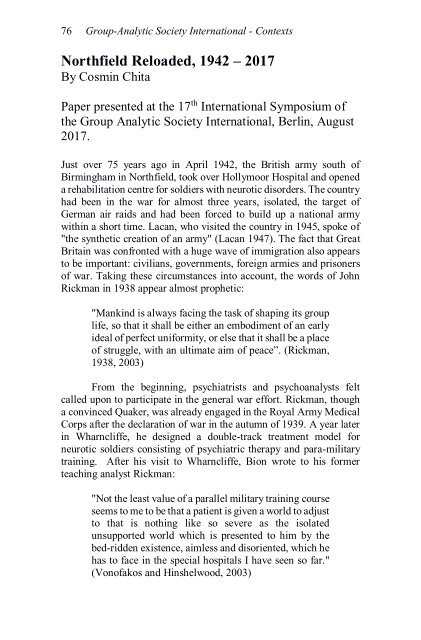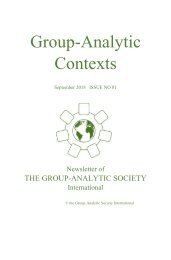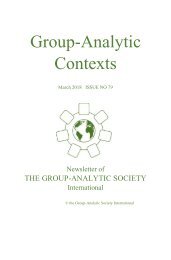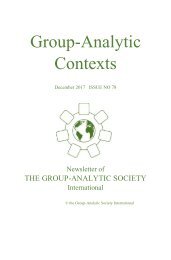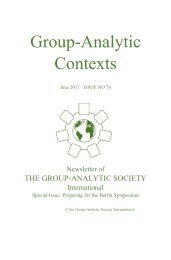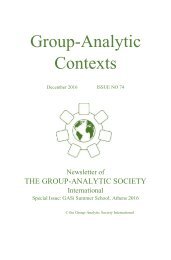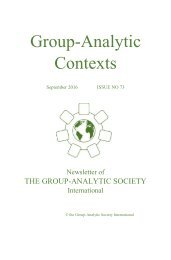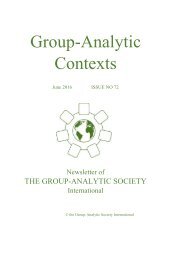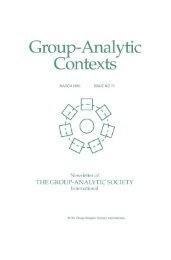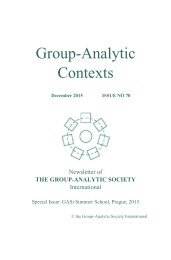Group Analytic Contexts, Issue 77, September 2017
Newsletter of the Group Analytic Society International
Newsletter of the Group Analytic Society International
Create successful ePaper yourself
Turn your PDF publications into a flip-book with our unique Google optimized e-Paper software.
76 <strong>Group</strong>-<strong>Analytic</strong> Society International - <strong>Contexts</strong><br />
Northfield Reloaded, 1942 – <strong>2017</strong><br />
By Cosmin Chita<br />
Paper presented at the 17 th International Symposium of<br />
the <strong>Group</strong> <strong>Analytic</strong> Society International, Berlin, August<br />
<strong>2017</strong>.<br />
Just over 75 years ago in April 1942, the British army south of<br />
Birmingham in Northfield, took over Hollymoor Hospital and opened<br />
a rehabilitation centre for soldiers with neurotic disorders. The country<br />
had been in the war for almost three years, isolated, the target of<br />
German air raids and had been forced to build up a national army<br />
within a short time. Lacan, who visited the country in 1945, spoke of<br />
"the synthetic creation of an army" (Lacan 1947). The fact that Great<br />
Britain was confronted with a huge wave of immigration also appears<br />
to be important: civilians, governments, foreign armies and prisoners<br />
of war. Taking these circumstances into account, the words of John<br />
Rickman in 1938 appear almost prophetic:<br />
"Mankind is always facing the task of shaping its group<br />
life, so that it shall be either an embodiment of an early<br />
ideal of perfect uniformity, or else that it shall be a place<br />
of struggle, with an ultimate aim of peace”. (Rickman,<br />
1938, 2003)<br />
From the beginning, psychiatrists and psychoanalysts felt<br />
called upon to participate in the general war effort. Rickman, though<br />
a convinced Quaker, was already engaged in the Royal Army Medical<br />
Corps after the declaration of war in the autumn of 1939. A year later<br />
in Wharncliffe, he designed a double-track treatment model for<br />
neurotic soldiers consisting of psychiatric therapy and para-military<br />
training. After his visit to Wharncliffe, Bion wrote to his former<br />
teaching analyst Rickman:<br />
"Not the least value of a parallel military training course<br />
seems to me to be that a patient is given a world to adjust<br />
to that is nothing like so severe as the isolated<br />
unsupported world which is presented to him by the<br />
bed-ridden existence, aimless and disoriented, which he<br />
has to face in the special hospitals I have seen so far."<br />
(Vonofakos and Hinshelwood, 2003)


